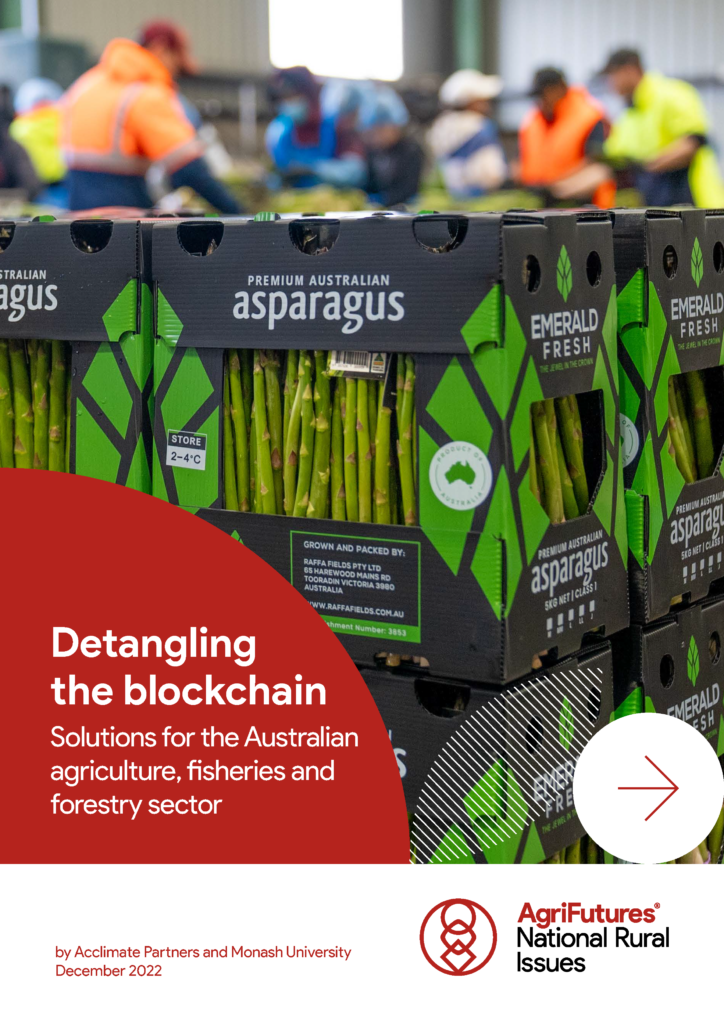Blockchain is a distributed digital infrastructure that enhances the reliability, security and availability of information by utilising encryption and distributing data across multiple locations for cross-validation. This approach mitigates the risks associated with storing information in a single, central location and makes it resistant to manipulation.
One promising application of blockchain technology in the agriculture sector is supply chain traceability. By providing a dependable tracing method for all stakeholders, blockchain solutions can reduce fraud and inefficiencies in the supply chain. These solutions can also foster trust between farmers and buyers, minimise transaction costs, and improve overall efficiency. However, beyond the supply chain traceability use case, the full potential of blockchain in agriculture remains largely unexplored.
This paper is intended to help Australia’s rural industries understand the benefit of blockchain technology and identify where it can be applied to improve operations and profitability.
Key findings
This report highlights six areas within the agriculture, fisheries and forestry sector where blockchain technology can bring benefits to primary producers and supply chains:
(1) Provenance and traceability
Blockchain technology can increase traceability and transparency in supply chains, helping to combat fraud, mislabelling and substitution. It can also streamline transactions through the use of smart contracts and secure communication of sustainability credentials.
(2) Trade and e-commerce
Blockchain technology can provide solutions for secure digital payments, information security and cost savings. The use of smart contracts could revolutionise agricultural insurance by automating payouts based on real-time weather data.
(3) Quota and allocation management
Blockchain technology can address issues of misuse and fraud in water markets, improving trust and accessibility.
(4) Land management
Blockchain-based land registries could increase transparency and immutability in documentation, addressing issues of incomplete or erroneous documentation, conflicting entries and unclear, ambiguous or fraudulent provenance.
(5) Royalties on genetics
By using automated royalty percentages triggered on the sale of a final product or output, blockchain technology can help ensure appropriate compensation is passed back up the chain for genetic improvement and commercialisation.
(6) Communicating ESG credentials
Blockchain technology can increase comparability, transparency and consistency in promoting and rewarding ESG initiatives, particularly for supply chains that cross multiple geopolitical boundaries.





